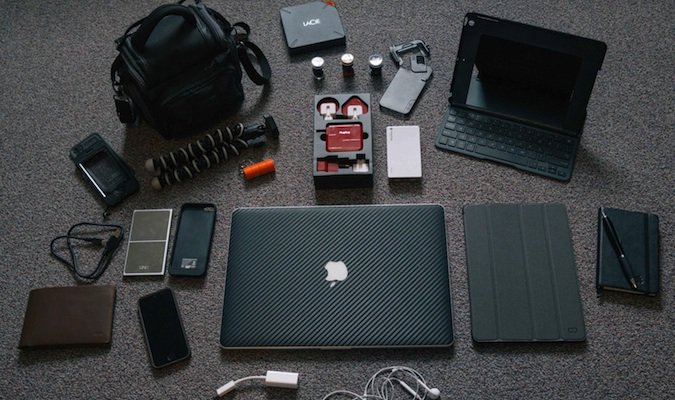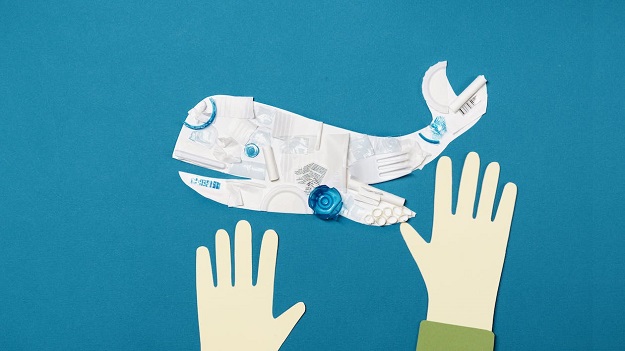No effort is too small if it’s done for a cause as big and important as saving the earth. But as with any herculean task, it can be overwhelming to find a place to start. For starters, it helps to be aware of your ecological impact, or effect that your actions have on the environment and other living organisms. Our daily choices, from what we eat for breakfast to how we commute to work, have immediate and lasting consequences on the world we live in. The goal of this article is to help you minimize your ecological impact.
The following are simple and practical actions you can start taking today in order to have an eco-friendly lifestyle.
1. Use a Reusable Water Bottle

Plastic water bottles are not just wasteful; they’re also out of fashion. Stainless steel water bottles are the exact opposite. They help you reduce the plastic waste you generate and they’re so easy to purchase, use, and clean. As an added bonus, they’re also quickly becoming a symbol of fitness and sustainability.
2. Send Electronic Greetings
If you’re the type of person who loves to send greetings during birthdays, Christmas, and other special occasions, electronic greetings are the best choice. They’re super easy to send, cost almost nothing, and still achieve the desired effect: letting loved ones feel close even if you’re physically apart. Personalizing your message, adding emojis or photos, or sending a voice message are just some of the ways you can make your e-greetings even more special!
3. Avoid Throw-Away Products
Paper plates, plastic cups, and plastic utensils may have had their heyday, but now we know that they’re not worth using. That’s because plastic products can take as long as a century to decay. So, avoiding single-use plastics is the best way to go.
4. Plug Off Gadgets

We’ve been taught from a young age that we need to turn off electronics when they’re not in use in order to cut the cost of energy. However, if they are plugged in, these appliances can still consume energy. So, make sure to plug off gadgets. Better yet, use a power strip so that your plugged-in gadgets won’t consume electricity while they’re turned off.
5. Buy Quality Products
It’s always tempting to choose a lower-priced product over a higher-priced one. However, this often results in having to buy replacement products sooner and more often. In the end, we end up wasting money and contributing lots of waste. It is better to buy high-quality products in the first place. They last longer and ultimately offer the best bang for your buck.
6. Bring Your Own Bags When You Shop

Speaking of cutting down on plastic, it’s also a good idea to bring a reusable bag whenever you go to the farmer’s market or grocery store. In fact, you should make it a habit to bring a reusable bag whenever you go out. That way, you’ll be able to refuse plastic bags and use your own bags if and when you decide to pick something up at the store.
7. Shop Local and Seasonal
Let’s admit it: online shopping has its perks. It’s convenient, easy, and often fast. But we must examine the true cost of this modern-day convenience. Lots of airplane and truck fuel needs to be burnt in order for our orders to reach our doorstep.
So, the next time you open your favorite shopping app, ask yourself if you can find the item you want at a local store. Supporting local stores is not just a boost for nature. It will also help you connect with your community and empower small-scale, homegrown businesses. Additionally, when shopping for fruit, make it a point to choose fruits that are in season. That’s because fruits that are not in season will most likely be imported.
8. Use Green Transportation
It pays to be wary not only of how your groceries and food items are transported, but also how you yourself get from point A to point B. If riding a bicycle to and from your office is not a viable option for you at the moment, consider carpooling or riding the subway. Whenever you travel, consider the ecological impact of your chosen mode of transportation.
9. Eat Less Meat and Dairy
The production of meat and dairy products takes a huge toll on the environment. Lots of water, foliage, and other resources are spent on fattening up cattle, for instance. While going on a vegan or vegetarian diet might not be possible for everyone, we can always opt to consume less meat and dairy. That way, we don’t bring up the already-high demand for these resource-heavy products.
10. Collect Rainwater for Watering Plants
Water is such a valuable resource and rainwater is no exception. Rainwater can be used for watering your garden. You can even take your efforts a notch higher by installing a rainwater catchment recycling system. This will help you maximize the use of the rainwater you collect to minimize the ecological impact.
Final words
Where else should you start minimizing your ecological footprint if not at home? Small things like using reusable bags and water bottles can go a long way. Couple that with efficient habits like green transportation and rainwater harvesting, and you’re off to a solid start. Remember, small but consistent changes can help save the earth. So, these were some of the tips to minimize the ecological impact, let us know your thoughts about globar warming by posting a comment below, we would love to hear your feedback.

